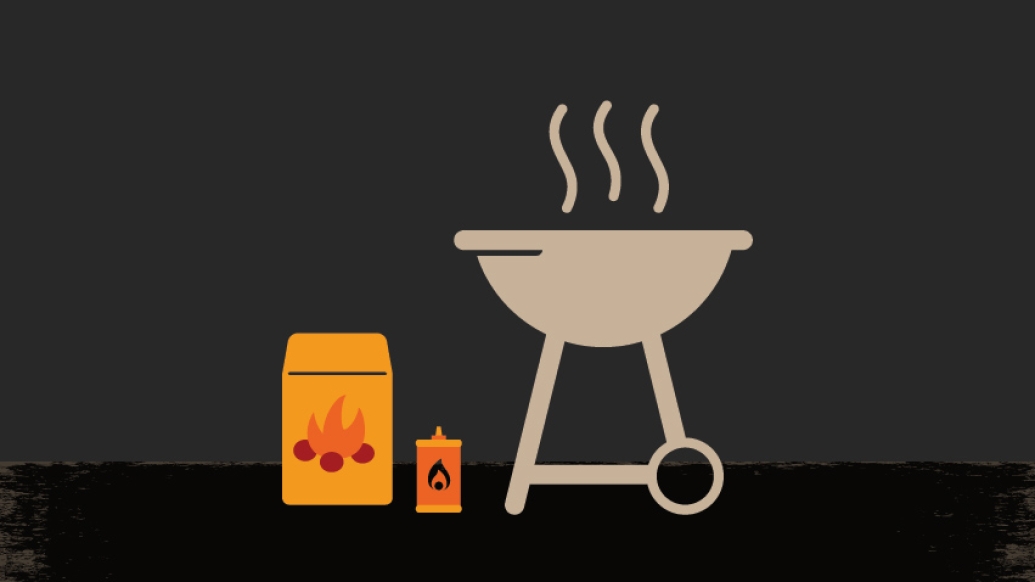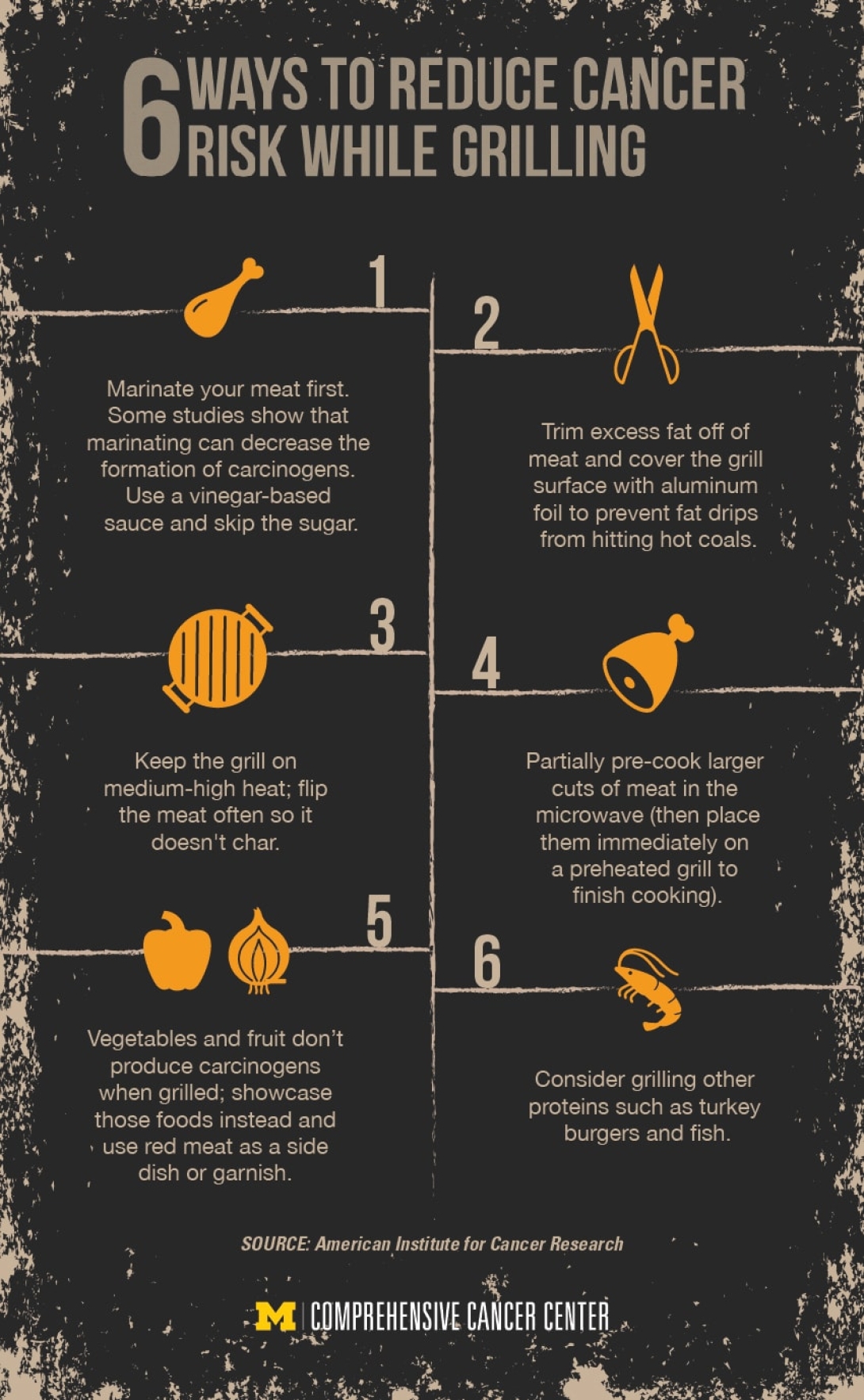The connection between grilling and cancer has become a hot topic. Know the simple ways to protect yourself before picnicking this summer.
7:00 AM
Author |

Summer is almost here, and that means it's time to fire up the grill.
But the beloved seasonal pastime can come with a hidden health risk: cancer.
MORE FROM MICHIGAN: Sign up for our weekly newsletter
Researchers continue to find links between grilling meat at high temperatures and various types of cancer. That's because carcinogens, which are agents or exposures known to cause cancer, can be produced when meats are grilled at high temperatures. They also can be found in the smoke that is made when fat drippings hit hot coals.
The type of meat you are throwing on the grill can affect your cancer risk, too.
High amounts of processed meat, such as hot dogs and sausage, in one's diet increases risk for colorectal cancer, while excess consumption of red meat heightens the risk of colorectal and stomach cancers.
To make your summer barbecues more healthful yet still tasty, consider these tips:


Explore a variety of healthcare news & stories by visiting the Health Lab home page for more articles.

Department of Communication at Michigan Medicine
Want top health & research news weekly? Sign up for Health Lab’s newsletters today!





